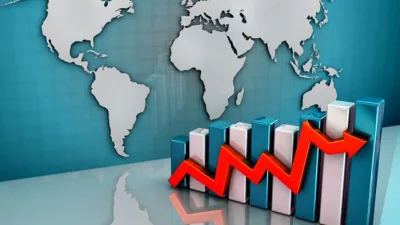US indices report worst week of performance since GFC


US stockmarkets entered into correction territory on Thursday, having now fallen more than 10% from their record closes earlier this month, and reporting the worst week of performance since the Global Financial Crisis in 2008.
The Dow Jones suffered particularly badly with its biggest one-day points loss in its history at 1,200 points.
For the tech-heavy NASDAQ index, the 4.6% loss was the largest in eight years.
All three major indices, Dow Jones, NASDAQ and S&P 500, fell by more than 4.4% during the day.
The fall was triggered by fears the coronavirus was evolving into a global pandemic combined with a deterioration in market sentiment. There were widespread concerns in markets about the impact the coronavirus, which has killed around 2,000 people, would have on sectors such as tourism and aviation.
US President Trump held a press conference on Wednesday night and announced he had appointed Vice President Mike Pence to lead the US’ coronavirus response. Some 33 people in California tested positive for coronavirus and it was monitoring a further 8,400 for the disease.
US health secretary Alex Azar announced his priorities included better disease surveillance, local government response co-ordination, development of therapeutics and increased manufacturing of protective equipment of masks.
In Australia, the ASX 200 was relatively unscathed in comparison to its US counterparts, falling less than 1%.
Recommended for you
Selfwealth has provided an update on the status of its scheme implementation deed with Bell Financial Group as well as whether rival bidder Svava remains in the picture.
Magellan Financial Group has reported its first half FY25 results while appointing a new chief financial officer and promoting Sophia Rahmani to chief executive.
Schroders Australia has launched two active ETFs and plans to further expand its listed range over the year ahead.
Platform Netwealth has reported its financial results for the first half of FY25, reporting an 80 per cent increase in net flows, with its CEO viewing a “huge opportunity” from private assets.















